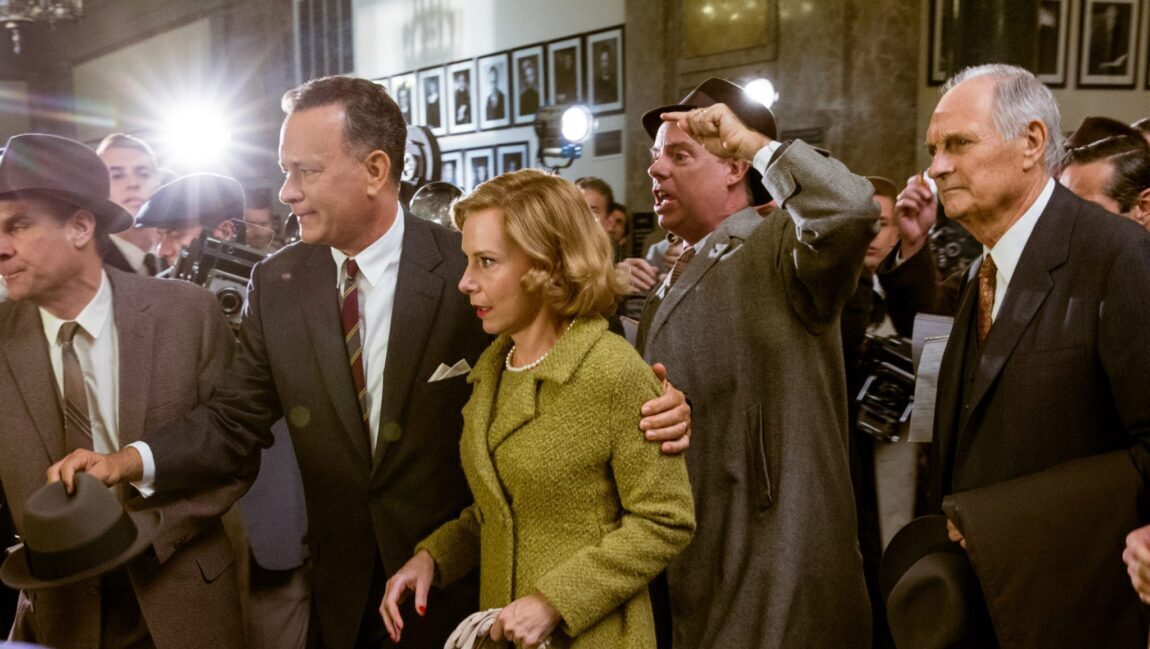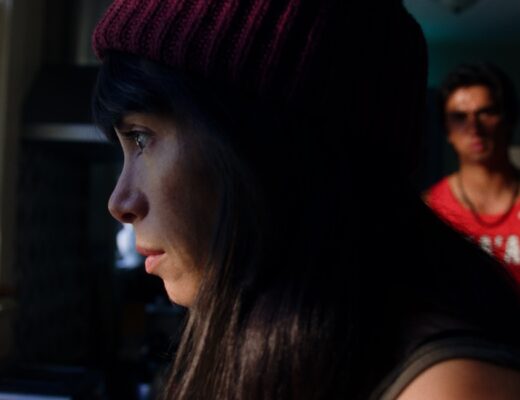It’s not new to describe Steven Spielberg as a sort of father figure in Hollywood filmmaking. A film like War of the Worlds, just to take a somewhat recent example, is so skillfully unnerving it might as well be a bedtime story told by a parent with intimate knowledge of what will terrify their child. His latest, Bridge of Spies, is the kind of simple but fiercely moral lesson that feels all of a piece with that paternal instinct, and its executed with an unobtrusive formal economy that only serves to reinforce the sobriety of its idealism. Tom Hanks, in a role one might imagine would have gone to Gregory Peck or Henry Fonda fifty years ago, is well-connected insurance attorney James Donovan, who accepts out of unassuming patriotic duty the unenviable job of defending recently captured Soviet spy Rudolf Abel (Mark Rylance, basically the physical embodiment of patience and pragmatism here), and whose insistence on the standards of fairness and due process to which he believes his client is entitled get him drawn into an effort to trade Abel back to the Soviets in exchanged for U2 spy plane pilot Francis Gary Powers. Problem is, the East Germans have their own hostage, a politically useless American student whom Donovan nevertheless insists is just as intrinsically valuable even if the CIA would happily let him rot.
a story of calm righteousness in the face of relentless fear and self-interest
Bridge of Spies is above all a story of calm righteousness in the face of relentless fear and self-interest. It opens with Donovan in a calculated negotiation in which he insists that the five victims of an accident caused by a man insured by his client constitute only one claim (a marvelous exchange heightened by snappy dialogue courtesy co-writers the Coen brothers), and concludes with a trade of human beings in which he is the only true advocate for the conservation of lives. In between there’s scene after scene of thinly-veiled ideological sparring, captured by Spielberg with typically elegant one-takes peppered with gently expressive accents, like the subtle reflections of neon signs in rain puddles or the rhyming shots that match refugees scaling the Berlin Wall to kids back home in New York jumping over a backyard fence. That Spielberg makes this all so seemingly effortless makes it easy to dismiss as hamfisted, but the clarity of purpose is straight out of something like Ford, and the seriousness of its belief (and its crisp anamorphic compositions) recalls Preminger, a simplicity and precision that reveals the moral weight of this ostensibly genteel procedural.








No Comments